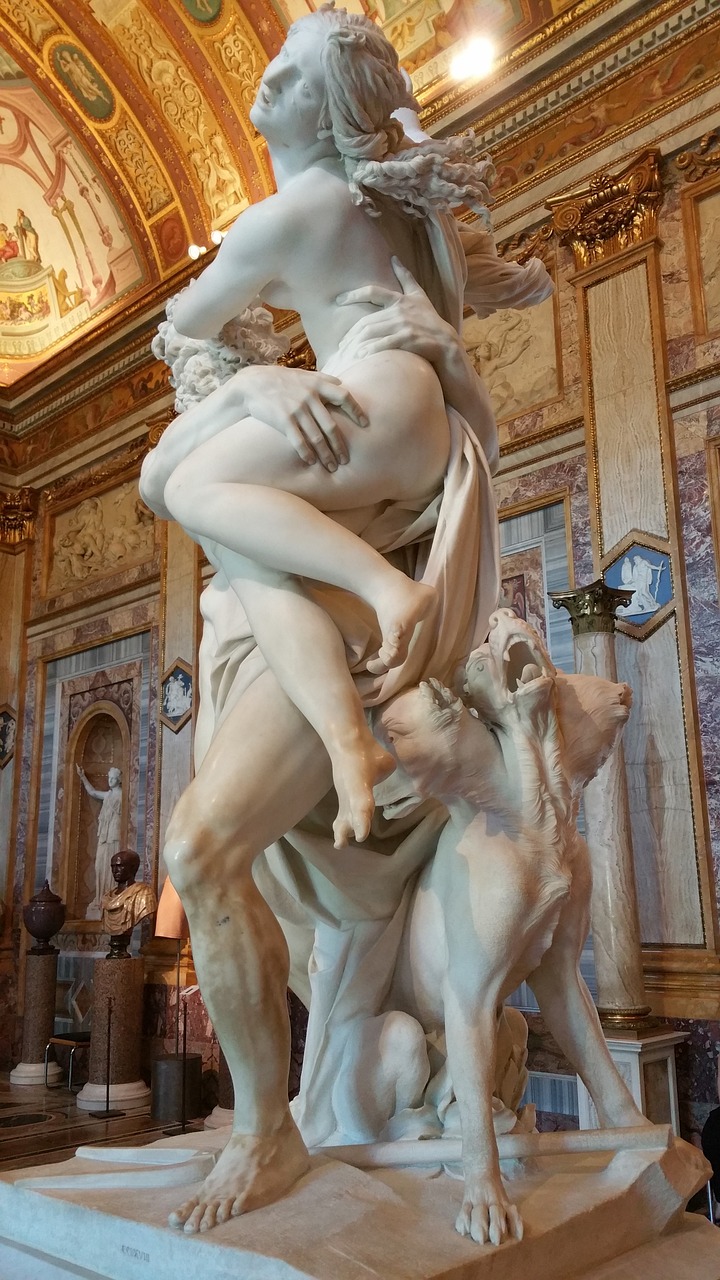Overview
Pluto, the primary deity of the Roman underworld, held a significant position among the chthonic gods. He represented not only the dead but also governed the wealth hidden beneath the earth in ores, metals, and precious stones. Renowned for his immense power, Pluto also played a crucial role in determining mortal destinies. Often associated with the Greek god Hades, Pluto’s persona was deeply rooted in the classical tradition and evolved through various historical influences.
A notable depiction from the second century CE shows an aged Pluto leaning on his staff, accompanied by Cerberus, his three-headed guardian dog. This statue resides in the Heraklion Archaeological Museum in Crete, Greece.
Pluto’s definition embodies a complex historical narrative forged from two primary figures: Hades, the Greek underworld god, and Plouton, the god of wealth among early Romans. Additionally, the deity known as Dīs Pater was similarly revered for his dominion over the mystical and mineral-rich underworld, leading to interchangeable usage of names within Roman traditions.
Etymology
The term “Pluto” is derived from the Latin name Plūtō, rooted in the Greek title Plouton, which translates to “the wealthy one.” This title emphasizes his command over subterranean riches, further linking him to the ancient Greek word ploutos, which signifies “wealth.”
Meanwhile, Dīs Pater, another name frequently associated with Pluto, stems from Proto Indo-European terms meaning “god” and “father.” Latin equivalents of these terms are deus (god) and pater (father). Various similar names like Diespiter were also attributed to Jupiter, the chief deity of Rome, suggesting that Dīs Pater (or Pluto) initially represented another facet of Jupiter before evolving into an independent figure integrated with the characteristics of Hades.
Attributes
Pluto ruled the underworld in Roman mythology, the domain where the souls of the departed resided. He dwelled in an obscure palace underground and showed little interest in the world above. This detachment meant that Pluto was rarely involved in divine affairs. He was typically depicted with a chariot, staff, and often adorned with a warrior’s helmet. With him, always present, was Cerberus, the three-headed dog who served as both companion and sentry of the underworld.
Family
Born to Ops, the earth goddess, and Saturn, the supreme sky god, Pluto shared his life with powerful siblings: Jupiter, the dominant deity, and Neptune, the ruler of the seas, along with the goddesses Juno, Vesta, and Ceres. Though Pluto spent a great deal of time in isolation, he eventually claimed Proserpina, the daughter of Ceres and Jupiter, as his queen. While various myths suggested offspring from this union, consensus remained elusive, with the avenging Furies often cited as their common children.
Mythology
Pluto and Proserpina
One prominent tale associated with Pluto recounts his kidnapping of Proserpina, resulting in deep sorrow for her mother, Ceres. Pluto’s lonely existence prompted Venus to encourage her son Cupid to ignite a romantic spark within him. This led Pluto to abduct Proserpina, who was blissfully enjoying the Nysa fields. This event intricately described by Ovid in his Metamorphoses powerfully illustrates the emotional turmoil of both Proserpina and Ceres.
In her relentless search for her daughter, Ceres neglected her responsibilities, leading to widespread agricultural failures. In response, the gods intervened, prompting Mercury to reveal Proserpina’s fate to Jupiter, who demanded her release from Pluto. Agreeing to relinquish her, Pluto insisted she remain in the underworld for a portion of the year after Proserpina inadvertently consumed pomegranate seeds amidst her captivity. Consequently, she was destined to alternate her time, representing the seasons as she spent half the year with Ceres and half with Pluto.
Pluto and Orpheus
Another significant story involves Orpheus, famed for his enchanting music and ability to sway listeners’ hearts. Following the tragic death of his beloved Eurydice, Orpheus descended into the underworld, hoping to retrieve her through song. His music resonated with Pluto and Proserpina, who, moved by his lament, agreed to return Eurydice on the condition that he would not look back at her until they were above ground. Tragically, Orpheus, filled with doubt, turned to confirm her presence just as they neared the exit, sealing Eurydice’s fate in the underworld forever.
The story of Orpheus enshrined Pluto within the Orphic Mysteries, where he was revered and honored in solemn hymns, presenting him as the benevolent ruler whose generosity was essential for mortal sustenance.
Pluto and Roman Religion
Despite his immense power and the thematic significance of death, Pluto was not a central figure in Roman state worship. Unlike other deities, he did not have dedicated public festivals, possibly reflecting the influence of mystery religions that enriched the understanding of his divine role.
Pop Culture
The legacy of Pluto extends into modern times, notably reflected in the name of a celestial body once classified as the ninth planet in our solar system. Discovered in 1930 by Clyde Tombaugh, the name was suggested by eleven-year-old Venetia Burney, inspired by the mythology surrounding the Roman god. Additionally, the name reached popular culture with the introduction of Pluto, Mickey Mouse’s pet dog, created by Walt Disney.



